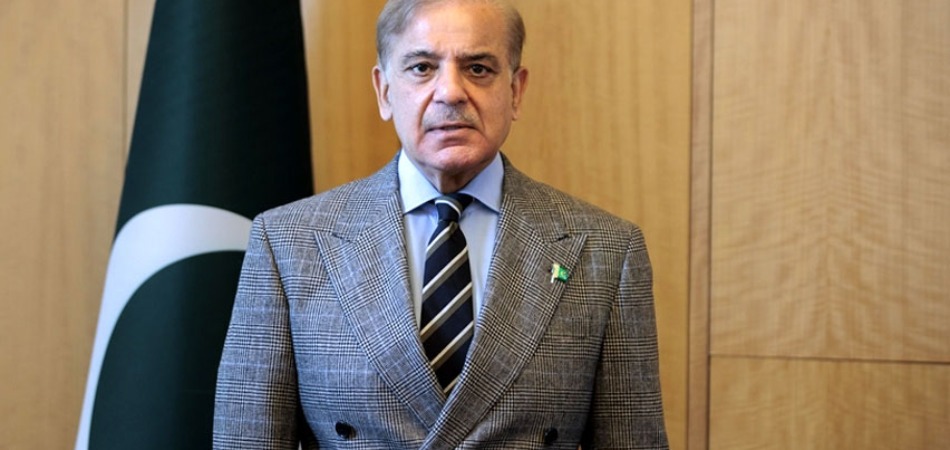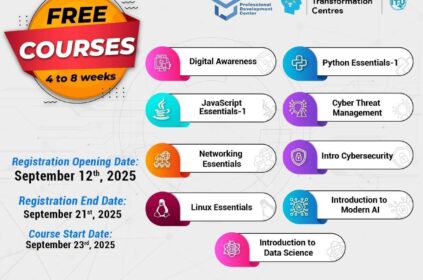On International Youth Day, observed annually on August 12, Prime Minister Muhammad Shehbaz Sharif delivered an inspiring message that resonates deeply with the nation’s aspirations. He emphasized that equipping the younger generation with modern technology and artificial intelligence (AI) skills is among the government’s top priorities. This focus isn’t just rhetoric; it’s a strategic move to harness the energy of Pakistan’s youth—often described as a symbol of determination, courage, and resilience—to drive economic growth and inclusive development.
Pakistan boasts one of the world’s largest youth populations, with over 60% of its citizens under the age of 30. This demographic dividend presents both opportunities and challenges. In a rapidly digitizing world, where AI and tech are transforming industries, empowering young people with relevant skills is crucial. The prime minister highlighted how skilled youth are already contributing to economic activities, using their intelligence and energy to ensure development benefits reach the wider population. But what does this empowerment look like in practice? Let’s dive into the government’s policies, initiatives, and their potential impact.
Why Tech and AI Skills Matter for Pakistan’s Youth
In today’s global economy, tech skills and AI proficiency are no longer optional—they’re essential for competitiveness. According to the World Economic Forum, by 2025, AI and automation could displace 85 million jobs but create 97 million new ones, many in tech-related fields. For Pakistan, a country grappling with unemployment rates hovering around 6-8% among youth, investing in these areas is a game-changer.
Youth empowerment in tech helps bridge the skills gap, fosters innovation, and boosts GDP. Skilled professionals in AI can contribute to sectors like agriculture (through precision farming), healthcare (via diagnostic tools), and e-commerce (with personalized algorithms). The prime minister’s message underscores that young Pakistanis are the driving force behind economic growth, praising their resilience in overcoming challenges like economic instability and limited access to education.
Moreover, AI adoption can address Pakistan-specific issues, such as climate change mitigation and resource management. By prioritizing AI skills development in Pakistan, the government aims to prepare youth for future challenges, ensuring they not only survive but thrive in a tech-driven world.
Benefits of Youth Empowerment in Tech and AI
- Economic Inclusion: Skilled youth can participate in global freelancing platforms, earning foreign exchange. Pakistan’s IT exports already exceed $2.5 billion annually, and AI expertise could double this figure.
- Innovation Boost: Programs encouraging AI startups can lead to homegrown solutions, reducing reliance on imports.
- Social Impact: Tech-savvy youth can drive digital literacy in rural areas, promoting equality.
- Job Creation: Training in AI could create millions of jobs, as per the government’s AI Policy 2025 goals.
Government Initiatives: Policies and Practical Measures
The federal government is not just talking about change—it’s implementing a range of policies and measures to strengthen education, skills, and professional capacity among youth. Prime Minister Sharif outlined several key programs designed to prepare young people for the digital age.
Youth Skill Development Programme
This flagship initiative focuses on technical and IT training, providing hands-on experience in coding, data analysis, and cybersecurity. Through partnerships with organizations like the National Vocational and Technical Training Commission (NAVTTC), the program offers short courses in AI, machine learning, and deep learning. For instance, the NAVTTC Summer of Code 2025 includes an Advanced AI & Robotics Course, a 3-month job-oriented program covering machine learning, deep learning, and natural language processing.
Participants benefit from paid internships, bridging the gap between education and employment. The government has also introduced education loan programs to make higher learning accessible, ensuring even students from low-income backgrounds can pursue tech degrees.
AI Policy 2025: A Roadmap for the Future
Approved recently, Pakistan’s AI Policy 2025 aims to train one million AI professionals by 2030. This ambitious plan includes establishing an AI Innovation Fund and AI Venture Fund to support private sector involvement. The policy emphasizes creating jobs for youth while enhancing national security through AI-driven solutions.
Prime Minister Sharif stated that AI is the future, and his government is committed to providing opportunities in this field. “Our youth are Pakistan’s greatest asset,” he remarked, highlighting how the policy will equip them with skills to innovate and compete globally.
Digital Youth Hub and Related Portals
Launched by the PM, the Digital Youth Hub is a one-stop portal connecting youth to jobs, skills training, and e-learning resources. It offers over 100 in-demand courses, including AI, data analytics, and cybersecurity. Users can access affordable smartphones and laptops, with the government planning to distribute devices to one million high-achieving students.
Complementing this is the DigiPakistan National Skills Development Initiative, which provides online IT training. Additionally, the PM Youth Program has partnered with Stanford for AI training, teaching skills like developing AI products and technical problem-solving.
Other Key Programs
- AI for Youth Program: Focuses on integrating AI into education, with UNESCO engagements discussing AI for sustainable futures.
- Smart Youth Smart Pakistan: Promotes digital pathways and entrepreneurship.
- Youth Business and Agriculture Loan Scheme: Supports tech startups in agrotech, blending AI with traditional sectors.
- Commonwealth Asia Youth Alliance Secretariat: Based in Islamabad, it facilitates regional collaborations for skill-sharing.
These initiatives also include measures like the Digital Learning Portal, ensuring remote access to quality education. The government is working to provide affordable access to smartphones and laptops, enabling youth to leverage emerging technologies.
Challenges and the Path Forward
While these efforts are commendable, challenges remain. Limited internet access in rural areas, gender disparities in education, and the need for more trained educators could hinder progress. However, the government’s commitment, as echoed in the PM’s message, signals a proactive approach.
To overcome these, collaborations with international partners like Huawei and Google.org are vital. For example, Huawei is involved in ICT training for youth, while Google supports AI education expansion.
Looking ahead to 2025 and beyond, experts suggest updating school curricula with AI and digital skills, creating AI labs, and training teachers in modern methods. This holistic strategy could position Pakistan as a regional tech hub.
Real-World Impact: Stories of Success
Consider the story of young entrepreneurs in Lahore using AI to optimize supply chains for local businesses, or students in Karachi developing chatbots for healthcare queries. These examples illustrate how youth empowerment in tech translates to tangible benefits. Programs like Ignite’s celebration of International Youth Day align with the PM’s vision of a “Digital Nation Pakistan.”
By investing in youth, Pakistan is not only addressing unemployment but also fostering a culture of innovation. As the prime minister noted, skilled young professionals are ensuring development reaches the wider population.
For more on global AI trends, check out our related article on AI Innovations in Emerging Markets. Externally, learn about UNESCO’s AI ethics at UNESCO’s AI Page.
In conclusion, Pakistan’s focus on tech and AI skills development is a beacon of hope for its youth. With continued implementation, this could propel the nation toward sustainable growth.














